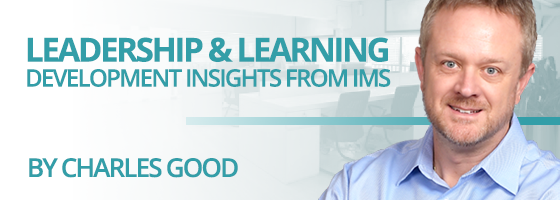What was the one factor that both Warren Buffett and Bill Gates stated was the key to their success? Both gave the same answer – focus. Steve Jobs was similar and was known for his single-minded focus on problems. Einstein developed a ‘Distraction Index’ when he was a teenager to build his concentration skills. If you look at anyone who achieved anything significant, regardless of the field of endeavor, you will see how focus leads to success.
In a society where distractions are everywhere, how do you maintain a singular focus? The road to mediocrity is littered with people who have tried to tackle too much, and in the end, become a wandering generality instead of a meaningful specific. Genius leaves clues and so does success, which means in terms of focus, there can be lessons learned from the super-successful.
BUFFET’S CIRCLE OF COMPETENCE
The concept of the Circle of Competence has been used over the years by Warren Buffett to focus investors on investing in what they know best. The concept appeared in the 1996 shareholder letter, “What an investor needs is the ability to correctly evaluate selected businesses. Note that word selected: You don’t have to be an expert on every company, or even many. You only have to evaluate companies within your circle of competence. The size of that circle is not very important; knowing its boundaries, however, is vital.”
This concept is visually depicted in a framed picture of Ted Williams, baseball Hall of Famer, that Buffet has in his office. In this picture, the strike zone is broken down into 77 individual squares. Williams understood that if he swung only at pitches in his sweet spot (his circle of competence), then his batting average would be 150 to 200 points higher than if swung at pitches in other parts of the strike zone.
Every person has constructed useful knowledge in certain areas or disciplines through experience or study. The challenge is to figure out where you have an edge and then operate inside that circle. Just as Williams practiced having discipline and patience at the plate, waiting to swing at pitches in his sweet spot, so did Buffet with his investments, only investing in companies within his circle of competence. As the founder of IBM, Tom Watson Sr., noted, “I’m no genius. I’m smart in spots–but I stay around those spots.”
In my previous blog, I unpacked another one of Buffett’s focusing strategies, the 5/25 productivity rule. This rule helps you to eliminate the majority of things you care about so you can focus on the few critical things that really matter.
GATE’S SERIAL OBSESSIVE MENTALITY
Walter Isaacson, in his book The Innovators, stated, “One trait that differentiated [Gates and Allen] was focus. Allen’s mind would flit between many ideas and passions, but Gates was a serial obsessor.”
“Where I was curious to study everything in sight, Bill would focus on one task at a time with total discipline,” said Allen. “You could see it when he programmed. He would sit with a marker clenched in his mouth, tapping his feet and rocking; impervious to distraction.”
Gates is known for a monomaniacal focus where he would obsessively stick to something until completion. He would not allow himself to get deterred by any distractions. As a result, he was able to go much deeper into the things he truly cared about.
In the book Deep Work: Rules for Focused Success in a Distracted World, Cal Newport states that going deep on anything requires intense focus without distraction. Many of us are flooded by mountains of shallow work, including email, meetings, text messages, etc. If we are not mindful, we will spend our days busy with shallow work while not accomplishing what is truly important. In order to prioritize deep, meaningful work, we must make time for it every day. Here are a few tips to get you started.
- Schedule at least one deep work time block every day
- Close your office door during your deep work time
- Use focus music to drown out distracting noises
- Shut down all social media, email, texting and notifications
STEVE JOBS’ AND THE ABILITY TO SAY ‘NO’
Steve Jobs, the late co-founder of Apple stated in 1997 at WWDC (worldwide developers conference), stated, “Focusing is about saying no.” For Jobs, he had to abandon thousands of great ideas if he was going to accomplish his highest priorities. According to Jobs, this takes courage, not willpower. Case in point, when he returned to Apple in 1997, Jobs thought the core issue facing the company was its inability to focus. According to Walter Isaacson’s biography Steve Jobs, when Jobs returned to Apple in 1997 he immediately got to work at reducing the number of Apple products by 70%. In some cases, he found that Apple had been producing multiple versions of even the same product to satisfy retailers. Jobs says in the book, “Deciding what not to do is as important as deciding what to do.”
Toward the end of his life, Jobs gave advice to Larry Page, who was about to come back as CEO of Google. The main thing Jobs stressed was for Page to focus. He said to figure out what Google wants to be when it grows up, right now its all over the map. Identify the five products Google should focus on? Once you identify those then get rid of the rest.
Which one of the techniques are you going to put into practice?
ABOUT CHARLES GOOD
Charles Good is the president of The Institute for Management Studies, which provides transformational learning experiences that drive behavioral change and develop exceptional leaders. Charles is an innovative and resourceful leader who specializes in bringing people together to develop creative organizational and talent strategies that enable business results. His areas of expertise include assessing organizational skill gaps and leading the design, creation and delivery of high impact, innovative learning solutions that achieve business goals.

1 Comment